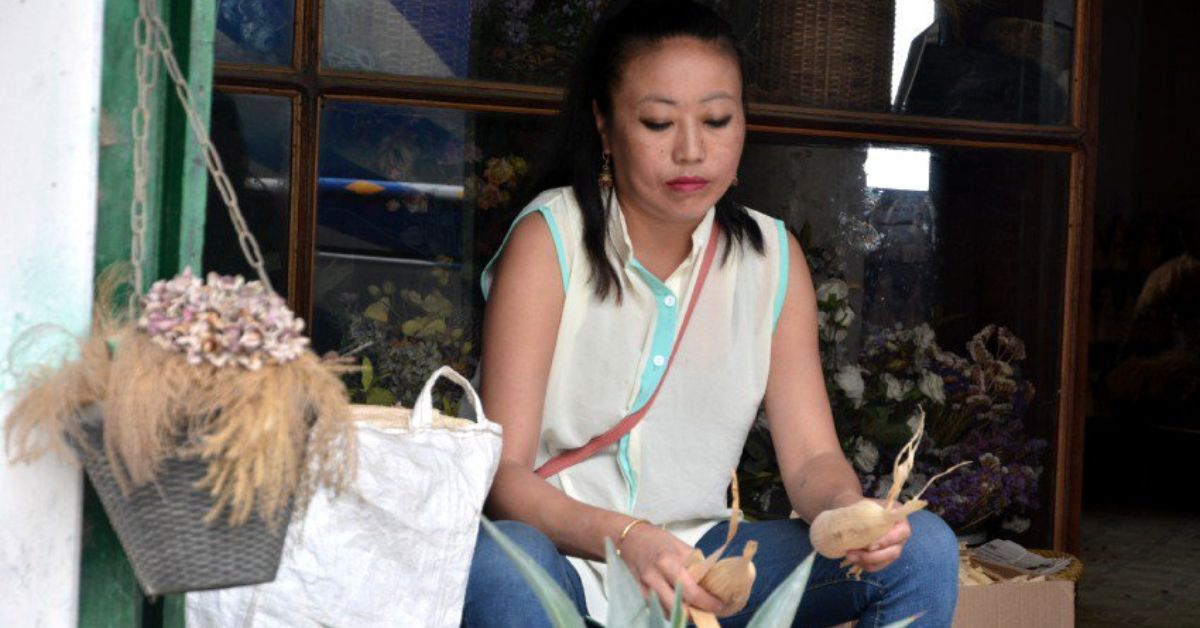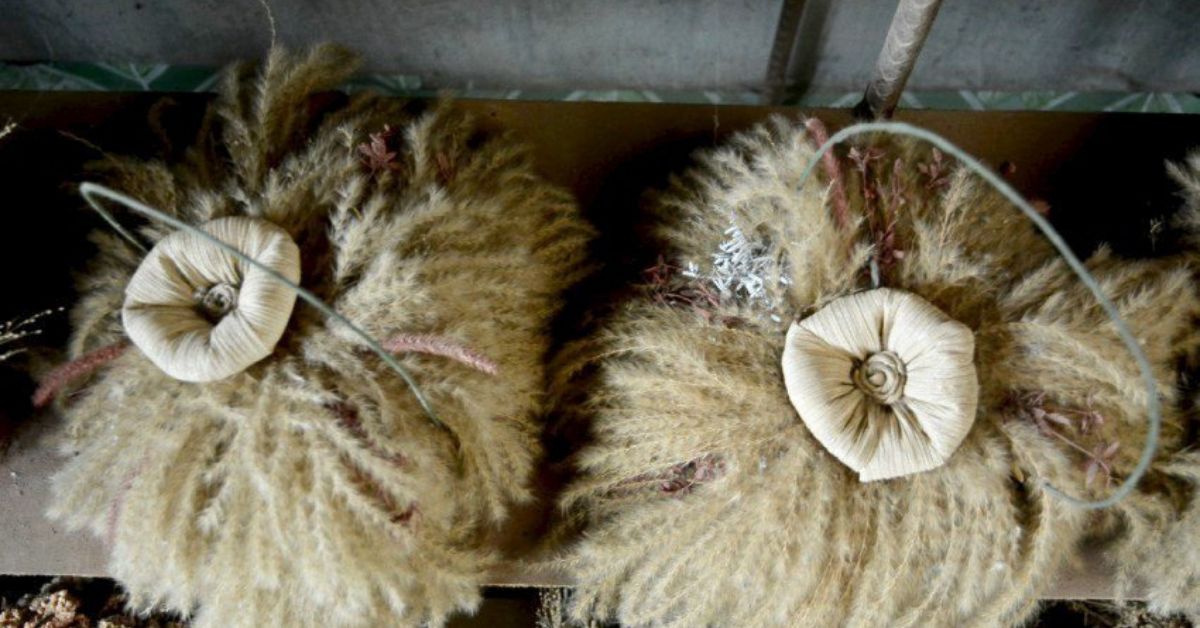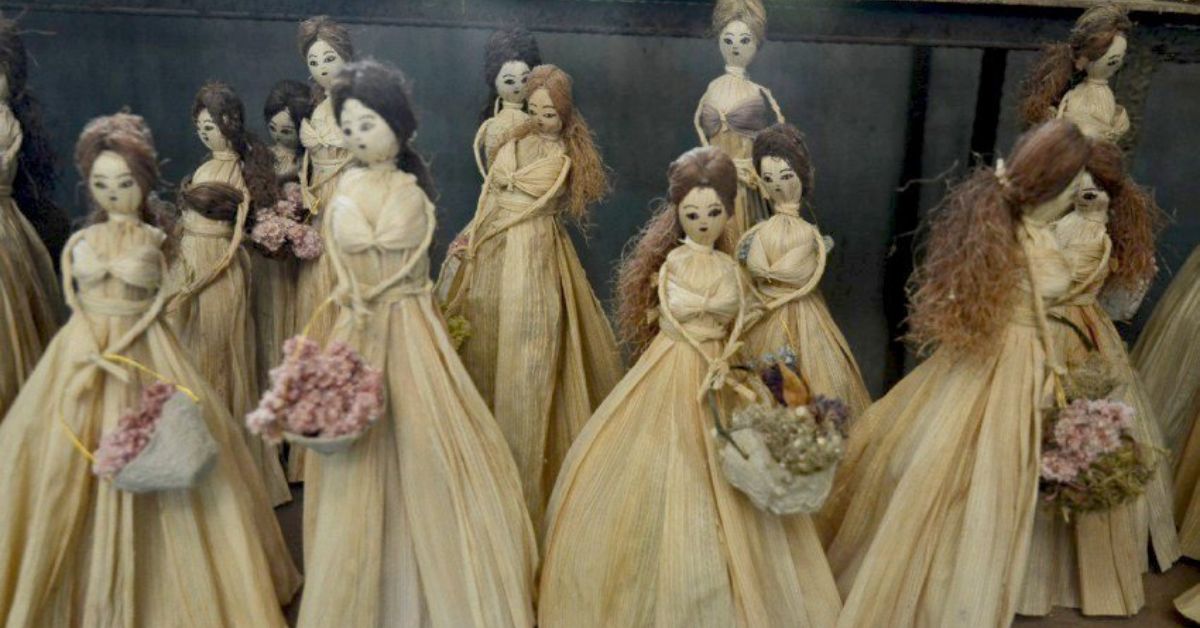How This Manipur Florist Turned Corn Husks Into Beautiful, Biodegradable Dolls
Feature image courtesy: E-Pao Manipur/X
If you thought vegetable scraps belonged in the compost bin, Manipur-based artist Nelly Chacheya is here to change your mind. Tucked away in the Senapati district, Nelly has mastered the craft of transforming discarded corn husks and silks into delicate, hand-crafted dolls that are equal parts art and sustainability statement.
At first glance, they might look like elegant souvenirs, but a closer look reveals an inspiring story of one woman’s creativity and commitment to greener living.
A florist with a curious eye
Nelly didn’t begin as a dollmaker. For years, she worked as a florist, arranging fresh blooms and tossing the wilted leftovers into the bin. But one day, as she sorted through vegetable scraps, especially corn husks from her family kitchen, she noticed the soft texture and structure they offered. What if these weren’t just waste, but raw material for something beautiful?
 Using dried corn husks for the body and silky threads from corn cobs for the hair, Nelly makes the dolls. Image courtesy: E-Pao Manipur/X
Using dried corn husks for the body and silky threads from corn cobs for the hair, Nelly makes the dolls. Image courtesy: E-Pao Manipur/X
Her first doll was an experiment. Using dried corn husks for the body and silky threads from corn cobs for the hair, she built a tiny figure, dressed it in layered petals, and painted on a face. It was simple, but charming, and enough to spark a new idea.
From hobby to homegrown business
Word soon spread. Visitors to her flower shop would marvel at the dolls on display, often mistaking them for boutique handicrafts. “She collected corn trash and transformed it into dolls. It’s so beautiful,” said one admirer. Encouraged by the response, Nelly began taking custom orders, reads a report by ANI. Each doll was handmade, unique, and reflected her evolving technique.
Today, she operates from a small studio space where she continues to handcraft these dolls to order. With no formal art training, she has taught herself how to manipulate natural materials, dry them for durability, and combine them with decorative elements like seeds, flowers, and leaves. What began as an artistic outlet is now a source of income—and a lesson in circular living.
A process rooted in patience
Crafting one doll takes several days. First, the vegetable waste is carefully sorted, washed, and sun-dried. Nelly uses the husks to form the body, layering and folding them into shape. The corn silk is braided into hair, while dried flowers form accessories or skirts. A final touch of paint brings out facial features, personality, and character. No two dolls are alike, and that’s exactly how Nelly likes it.
 By turning “trash” into art, Nelly invites people to reconsider what they throw away. Image courtesy: E-Pao Manipur/X
By turning “trash” into art, Nelly invites people to reconsider what they throw away. Image courtesy: E-Pao Manipur/X
She also experiments with colour, leaving some husks in their natural beige tones, while staining others with plant-based dyes to create pastel shades.
Sustainability at its core
In a region where waste management is still evolving, Nelly’s work offers a blueprint for eco-conscious creativity. Her dolls are fully biodegradable, created without plastic, and sourced entirely from natural, locally available materials.
More importantly, her initiative subtly challenges the culture of disposability. By turning “trash” into art, she invites people to reconsider what they throw away and what it could become with a bit of imagination.
Inspiring a quiet revolution
Nelly’s journey hasn’t gone unnoticed. Her craft is now inspiring women in neighbouring villages to explore similar ideas with plant waste, encouraging entrepreneurship at a grassroots level. While she hasn’t formalised a training programme yet, she often shares her techniques with those who show interest.
In a region where economic opportunities can be limited, her model of self-employment, based on sustainable practices, is quietly empowering women to earn from their own homes, using nothing but kitchen scraps and creative instinct.
What lies ahead
Nelly hopes to scale her initiative by conducting workshops and collaborating with artisans and eco-conscious buyers beyond Manipur. Her dream? To see her dolls become symbols of sustainable craft from the Northeast, which is handmade, rooted in tradition, and gentle on the planet.
 Dolls on display made by Nelly from corn husk and kitchen waste. Image courtesy: E-Pao Manipur/X
Dolls on display made by Nelly from corn husk and kitchen waste. Image courtesy: E-Pao Manipur/X
As her creations find homes across India, Nelly remains grounded in her purpose: to remind people that waste is only waste if you let it be.
Benefits of her sustainable dolls
- Zero waste: Reuses vegetable refuse that would otherwise be discarded.
- Eco-friendly materials: Completely biodegradable, with no synthetic fibres or plastic.
- Low-cost production: Uses readily available materials, requiring no industrial processing.
- Community impact: Empowers rural women to start their own eco-craft ventures.
- Cultural fusion: Blends traditional doll-making with a modern sustainability ethos.
News